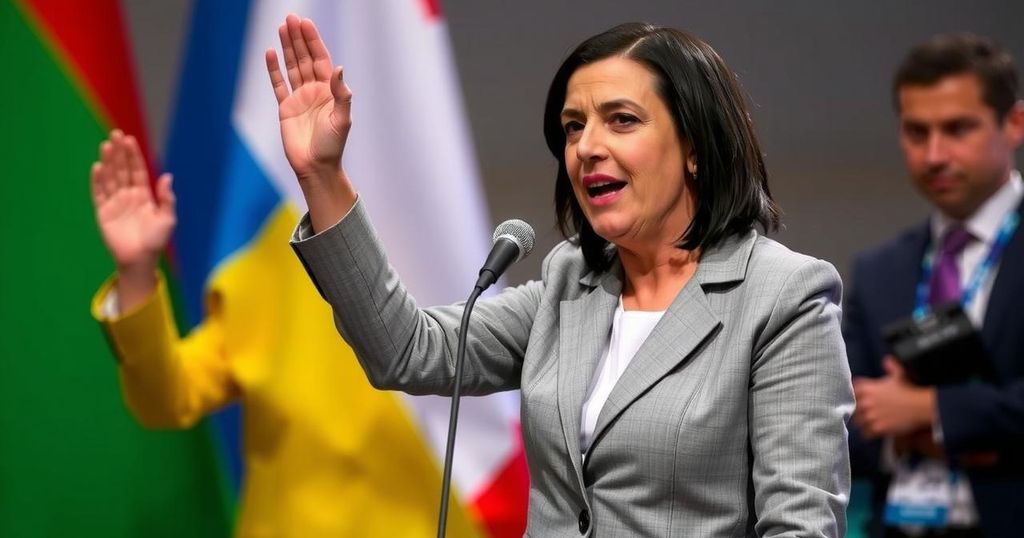Maia Sandu Secures Second Term in Moldovan Presidential Election, Reaffirming Pro-European Stance

Maia Sandu has been re-elected as president of Moldova, reinforcing the country’s pro-European stance amid significant geopolitical pressures from Russia. Sandu’s victory, highlighted by strong support from the diaspora, represents a continuing shift away from Kremlin influence, despite accusations of foreign meddling during the electoral process. Her administration is poised to advance Moldova’s EU aspirations with an ambitious timeline for membership by 2030.
Maia Sandu, the pro-European incumbent, has secured a second presidential term in Moldova, according to preliminary election results, signaling robust support for the nation’s aspirations to join the European Union (EU) and a clear challenge to Kremlin influence. In a runoff election characterized by geopolitical significance, Moldovans voted with the intention of determining the country’s alignment, either towards Russia or Europe. Sandu, who has strengthened Moldova’s efforts to distance itself from Moscow, competed against Alexandr Stoianoglo, a political newcomer aligned with Kremlin interests, from the Socialist Party. With nearly all votes counted, Sandu appears to be leading by an 8% margin, bolstered by strong support from the Moldovan diaspora, which constitutes about 20% of the electorate. This outcome is viewed as a crucial advancement for Sandu’s long-term EU ambitions, especially after a recent referendum for EU integration narrowly passed. Despite directly addressing her weakened position from the referendum, Sandu has reaffirmed her commitment to joining the EU by 2030, supported by a promised €1.8 billion multiyear assistance package from the EU. Under Sandu’s leadership, Moldova has increasingly sought to break free from Russian influence, especially amid the ongoing conflict in Ukraine. Claims of Russian interference have marred the electoral process, with Sandu’s team alleging a significant Kremlin-backed campaign of vote-buying and misinformation aims to sway election outcomes. Responding to these concerns, Sandu’s advisor raised alarms over potential interference, including instances of cyber-attacks targeting electoral processes. Stoianoglo, who garnered around 26% of the vote, faces scrutiny regarding his ties to Moscow, although he has refuted allegations of being a Kremlin proxy. He expressed a desire to improve relations with Russia and downplayed the extent of Russian influence within Moldova. As a result of these dynamics, the election results are expected to resonate across the region, particularly in Ukraine, which is keenly observing Moldova’s political trajectory given its proximity to the conflict in Ukraine and Russia’s ongoing military activities.
The Moldovan presidential election serves as a pivotal moment in the country’s aspirations for closer ties to the European Union amidst rising tensions with Russia. Maia Sandu, who has been a prominent advocate for EU integration, faces challenges from pro-Russian candidates and accusations of foreign interference in the electoral proceedings. The recent elections are reflective of Moldova’s historical oscillation between pro-Western and pro-Russian political affiliations, which have intensified with the ongoing war in Ukraine, influencing Moldovan public sentiment regarding national sovereignty and geopolitical orientation.
In summary, Maia Sandu’s re-election is a decisive reaffirmation of Moldova’s commitment to pursue EU membership and resist Kremlin influence. The electoral process reflects both the domestic political landscape and the broader regional implications concerning security and foreign relations. As Moldova embarks on its EU accession journey, continued vigilance against external interference will be paramount to safeguarding its democratic processes.
Original Source: www.theguardian.com








